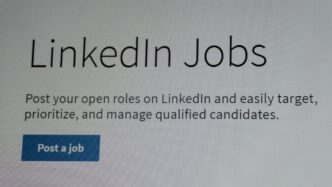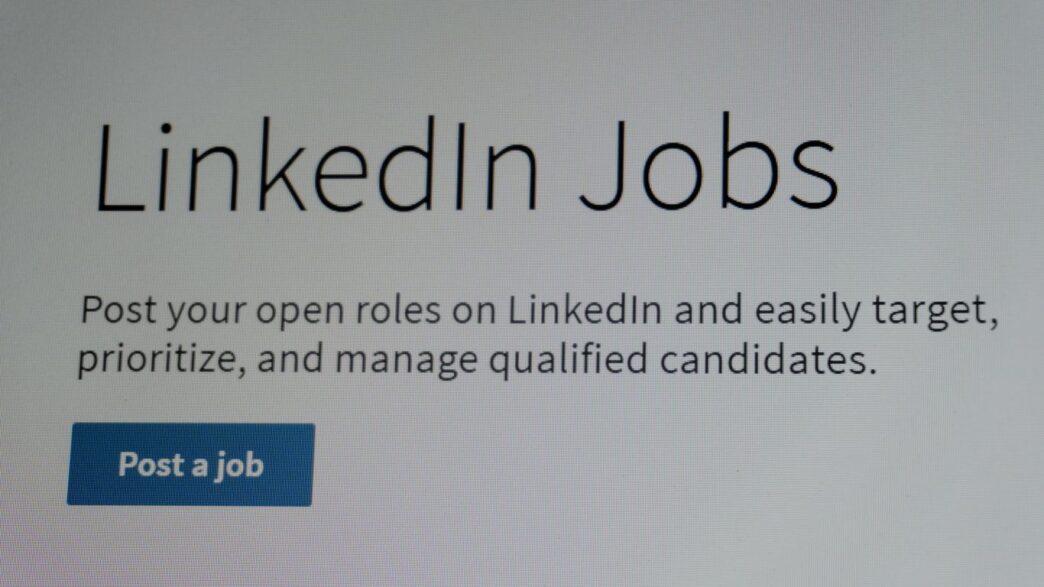Feeling a bit lost about your next career step? You’re not alone. The job market can be tricky to figure out, and sometimes, a little expert help goes a long way. That’s where career coaching services come in. They’re designed to give you a clear path forward, whether you’re looking to switch gears entirely or just get that promotion you’ve been eyeing. Think of it as getting a personal guide for your professional life.
Key Takeaways
- Get personalized advice to figure out your strengths and what you want next in your job.
- Learn ways to improve your skills, especially in leadership and new tech.
- Get help making your resume and online profiles look great to employers.
- Understand how to make a career change or get back into work smoothly.
- Find the right career coaching services by checking their background and how they can help you specifically.
Discover Expert Career Coaching Services For Your Goals
Feeling a bit lost about where your career is headed? It happens to the best of us. Maybe you’re thinking about a change, or perhaps you just want to make sure you’re on the right track for the future. That’s where professional career coaching comes in. It’s like having a guide who knows the landscape and can help you find the best path forward.
Personalized Guidance for Your Professional Journey
Think of career coaching as a one-on-one conversation about your work life. A good coach doesn’t just give generic advice; they take the time to learn about you. What makes you tick? What are you good at? What kind of work environment do you thrive in? They help you figure this out.
- Understanding your unique skills and interests.
- Identifying what you really want from your career.
- Setting realistic and achievable goals.
This isn’t about someone telling you what to do. It’s about them helping you see possibilities you might have missed and building a plan that fits your life.
Tailored Strategies for Career Advancement
Once you know your goals, the next step is figuring out how to get there. Career coaches work with you to create a plan that’s specific to your situation. This might involve looking at your current job and seeing how you can move up, or it could be about preparing for a completely new direction.
| Area of Focus | What a Coach Helps With |
|---|---|
| Skill Development | Pinpointing areas for growth and finding learning resources |
| Networking | Strategies for building professional connections |
| Job Search Tactics | Refining your resume, interview skills, and online presence |
| Industry Insights | Understanding current job market trends and opportunities |
The aim is to build a practical roadmap that moves you closer to your desired career outcome.
Expert Advice to Navigate Your Next Move
Sometimes, you just need a sounding board or a second opinion from someone who knows the professional world. Coaches bring an outside perspective, helping you look at challenges and opportunities with fresh eyes. They can help you weigh the pros and cons of different decisions, whether it’s taking a new job, asking for a promotion, or even starting your own business. It’s about making informed choices that set you up for long-term satisfaction and success in your work life.
Unlock Your Potential with Premier Career Coaching
Feeling like you’re just going through the motions at work? Maybe you’re not sure what’s next, or how to even get noticed in today’s busy job market. That’s where good coaching comes in. It’s about figuring out what you’re really good at and what might be holding you back. Think of it like having a guide who knows the terrain and can point out the best paths, and also warn you about the tricky spots.
Identify Strengths and Overcome Obstacles
Sometimes, we don’t even realize what we’re truly capable of. A coach can help you see those hidden talents. They use different methods, like talking through your past experiences or using simple assessments, to pinpoint what makes you unique. For example, a DISC assessment can show how you tend to communicate and work with others. Knowing this helps you play to your strengths. It also helps you understand why certain situations at work might feel difficult. Maybe you’re great at big ideas but struggle with the small details, or perhaps you’re a natural leader but find it hard to delegate. Once you know these things, you can start working on them. It’s not about changing who you are, but about learning how to use your natural abilities better and finding ways to handle the things that trip you up.
Develop Essential Leadership Skills
Leadership isn’t just for people with ‘manager’ in their title. It’s about influencing others, making good decisions, and guiding projects forward. Coaching can help you build these skills, no matter your current role. You might work on how you communicate your ideas clearly, how to motivate a team, or how to handle difficult conversations. A coach can give you practice scenarios and feedback. They might suggest specific training or books to read. For instance, learning how to give constructive feedback is a skill that benefits everyone. It helps your colleagues grow and makes your team stronger. Developing these skills can make you a more effective and respected professional.
Craft a Standout Resume and Online Presence
Your resume and online profiles are often the first impression you make. A coach can help make sure that impression is a strong one. They’ll look at your resume and help you highlight your accomplishments, not just list your duties. They can help you use numbers to show your impact – like ‘increased sales by 15%’ instead of just ‘responsible for sales’. They also know what recruiters are looking for. Beyond the resume, they can guide you on building a professional online presence, especially on platforms like LinkedIn. This means making sure your profile tells a consistent story about your skills and career goals. It’s about making sure that when someone searches for you, they see a capable and motivated individual ready for their next opportunity.
Navigate Career Transitions with Confidence

Thinking about a change? It’s totally normal to feel a bit unsure when you’re considering a big career shift. Whether you’re looking to switch industries entirely, move up the ladder, or even step back into the workforce after some time away, having a plan makes all the difference. This is where expert coaching really shines. It’s not just about finding a new job; it’s about making sure the next step is the right step for you.
Mid-Career Pivots and Industry Switches
So, you’ve been doing something for a while, and now you’re thinking, ‘Is this it?’ Many people reach a point where they want something different. Maybe the daily grind isn’t fulfilling anymore, or perhaps new technologies have opened up exciting possibilities you never considered. Making a switch from, say, accounting to graphic design, or from retail management to software development, can seem like a huge leap. A coach can help you:
- Figure out what skills you already have that can transfer to a new field.
- Identify any skill gaps and find ways to fill them, maybe through short courses or certifications.
- Understand the job market in your desired new industry.
- Practice talking about your career change in a way that makes sense to potential employers.
It’s about building a bridge from where you are to where you want to be, and making a career change doesn’t have to be a shot in the dark.
Re-entering the Workforce with Impact
Returning to work after a break – maybe for family, health, or personal reasons – can bring its own set of challenges. You might worry about being out of touch or how to explain the gap on your resume. Coaching can help you:
- Update your resume to highlight your most relevant skills and experiences.
- Boost your confidence by practicing interview questions and discussing your return.
- Connect with resources or networks that can help you re-establish yourself.
- Set realistic expectations for your return and identify roles that fit your current life.
Strategic Planning for Long-Term Success
Beyond just the next job, good coaching looks at your career as a whole. It’s about setting yourself up for sustained growth and satisfaction. This involves:
- Defining what long-term success looks like for you, not just what society expects.
- Creating a roadmap that includes professional development and skill-building over several years.
- Learning how to adapt to changes in the job market and stay relevant.
- Building a strong professional network that supports your ongoing journey.
Thinking strategically now can save a lot of stress and uncertainty down the road.
Invest in Your Future with Proven Coaching Services
Accelerate Professional Growth
Think of career coaching as a turbo boost for your professional life. It’s not just about getting a new job; it’s about building a career that truly fits you and your ambitions. Coaches help you see where you’re headed and how to get there faster. They can point out blind spots you might have, like skills you didn’t realize were in demand or ways you could be presenting yourself better. For instance, Sarah, a marketing exec, felt stuck. After working with a coach, she figured out how to use her existing skills in a new way and landed a much better role in just six months. It’s about making smart moves, not just busy ones.
Gain a Competitive Edge in the Job Market
Let’s be real, the job market is tough. It feels like everyone is trying to stand out. A good coach acts like your personal strategist. They help you figure out what makes you unique and how to show that to potential employers. This could mean polishing up your resume so it actually gets read, or practicing interview questions until you feel totally comfortable. Jason, for example, wanted to switch from finance to tech. It seemed like a huge leap, but his coach helped him see how his finance skills were actually super useful in tech. He learned some new tech skills too, and now he’s doing great. It’s about having someone in your corner who knows the game.
Real-World Success Stories and Testimonials
It’s one thing to talk about what coaching can do, but it’s another to see it actually happen. Take the story of Sarah, who felt her career had hit a wall. Working with a coach, she identified her strengths, learned some new things, and landed a director position within half a year. Or consider Jason, who made a big career change from finance to the tech world. He got guidance on how to use his existing skills and pick up new ones, and now he’s thriving. These aren’t just random stories; they show what happens when you get the right support. People often find that coaching helps them move forward much quicker than they could on their own.
Choosing the Right Career Coaching Partner
So, you’ve decided to get some help with your career. That’s a big step! But with so many coaches out there, how do you pick the one that’s actually going to help you, and not just take your money? It’s a bit like choosing a mechanic – you want someone who knows their stuff and won’t try to sell you something you don’t need.
First off, look at their background. Have they worked in fields you’re interested in? A coach who used to be a software engineer might have a better grasp of your challenges if you’re trying to break into tech, compared to someone who’s only ever coached marketing folks. Also, check out what kind of results they’ve gotten for other people. Do they have testimonials or case studies? Seeing real examples of people who’ve succeeded with their help is a good sign.
Here are a few things to consider:
- Credentials and Experience: What training do they have? How long have they been coaching? Do they have specific certifications that matter in the coaching world?
- Alignment with Your Goals: Does their specialty match what you want to achieve? If you want to pivot to a new industry, find someone who specializes in career transitions, not just resume writing.
- Tools and Methods: What do they use to help you figure things out? Some coaches use personality tests or skills assessments. It’s good if they have a structured way of working, rather than just chatting.
Think about it like this:
| Factor to Consider | What to Look For |
|---|---|
| Coach’s Background | Industry experience, relevant professional history, understanding of your field. |
| Client Success Stories | Testimonials, case studies, measurable outcomes for past clients. |
| Coaching Approach | Structured methodology, use of assessments, clear process, personalized plans. |
| Specialization | Focus on your specific needs (e.g., mid-career change, leadership development). |
Don’t be afraid to ask questions before you commit. A good coach will be happy to explain their process and how they can help you specifically. It’s a partnership, after all.
Enhance Your Skills Through Continuous Learning

It’s not enough to just have a good job; you’ve got to keep growing. The world of work changes fast, and what got you here won’t necessarily get you to the next level. That’s where focusing on learning new things comes in. Think of it like this: if you stop watering a plant, it eventually wilts, right? Your career is kind of the same way. You need to keep feeding it new knowledge and abilities.
Integrating Upskilling Platforms with Coaching
Career coaches are great at showing you where you need to go, but sometimes you need the tools to actually get there. That’s where online learning platforms become super helpful. Your coach might point out that you need to get better at data analysis, for example. Instead of just saying ‘get better,’ they can work with you to find courses on platforms like Coursera, edX, or even more specialized ones. These platforms let you learn at your own speed, fitting it around your current job. It’s like having a personal tutor available anytime you need it. This combination of expert advice and accessible learning is a powerful way to make real progress.
Developing Digital Literacy and Emerging Tech Skills
Let’s be honest, technology is everywhere now. If you’re not comfortable with computers and the latest digital tools, you’re already behind. This isn’t just about knowing how to use email; it’s about understanding cloud computing, basic cybersecurity, and how to use productivity software effectively. Beyond that, there are always new technologies popping up – think AI, machine learning, or new ways of working remotely. Learning about these can make you a much more attractive candidate for jobs, or help you do your current job better. It shows you’re adaptable and ready for what’s next.
Personalized Learning Paths for Career Goals
Everyone’s career journey is different. What works for one person might not work for another. That’s why a good coach will help you figure out exactly what you need to learn to reach your specific goals. Maybe you want to move into management, so you need leadership training. Or perhaps you’re aiming for a tech role, so coding bootcamps or specific software certifications are the way to go. Your coach can help you map out a plan, suggesting courses or workshops that fit your timeline and budget. It’s about making sure your learning efforts are focused and actually lead you where you want to be, rather than just learning for the sake of it.
Ready for Your Next Step?
So, you’ve seen how getting some help with your career can really make a difference. Whether you’re just starting out, thinking about a big change, or aiming for that promotion, there are people out there ready to guide you. It’s not about being stuck; it’s about choosing to move forward with a plan. Think about what you want your work life to look like and take that first step. You’ve got this.
Frequently Asked Questions
What exactly is career coaching?
Think of career coaching like having a personal guide for your work life. A coach helps you figure out what you’re good at, what you want to do next, and how to get there. They offer advice and support to help you reach your job goals and feel happier about your career.
How can a career coach help me find a new job?
A coach can help you create a resume that really shows off your skills, practice for interviews so you feel confident, and even help you figure out which jobs are the best fit for you. They know what employers are looking for and can give you tips to stand out.
What if I want to change careers completely?
That’s a big step, and a career coach can be super helpful! They can help you explore different job fields, see if your current skills can be used in a new area, and create a plan to learn anything new you might need. They make big changes feel more manageable.
How do I know if a career coach is good?
Look for coaches who have experience, maybe have worked in fields you’re interested in, and can show you that they’ve helped others succeed. Reading reviews or hearing success stories from past clients is also a good way to tell if they’re the right fit for you.
Is career coaching expensive?
The cost can vary, just like with any service. Some coaches offer different packages, from single sessions to longer programs. Think of it as an investment in your future. Many people find that the boost in their career and happiness is well worth the cost.
Can coaching help me get better at my current job?
Absolutely! Coaching isn’t just for finding new jobs. A coach can help you improve your skills, become a better leader, communicate more effectively, and handle challenges at work. They can help you grow and be more successful right where you are.














